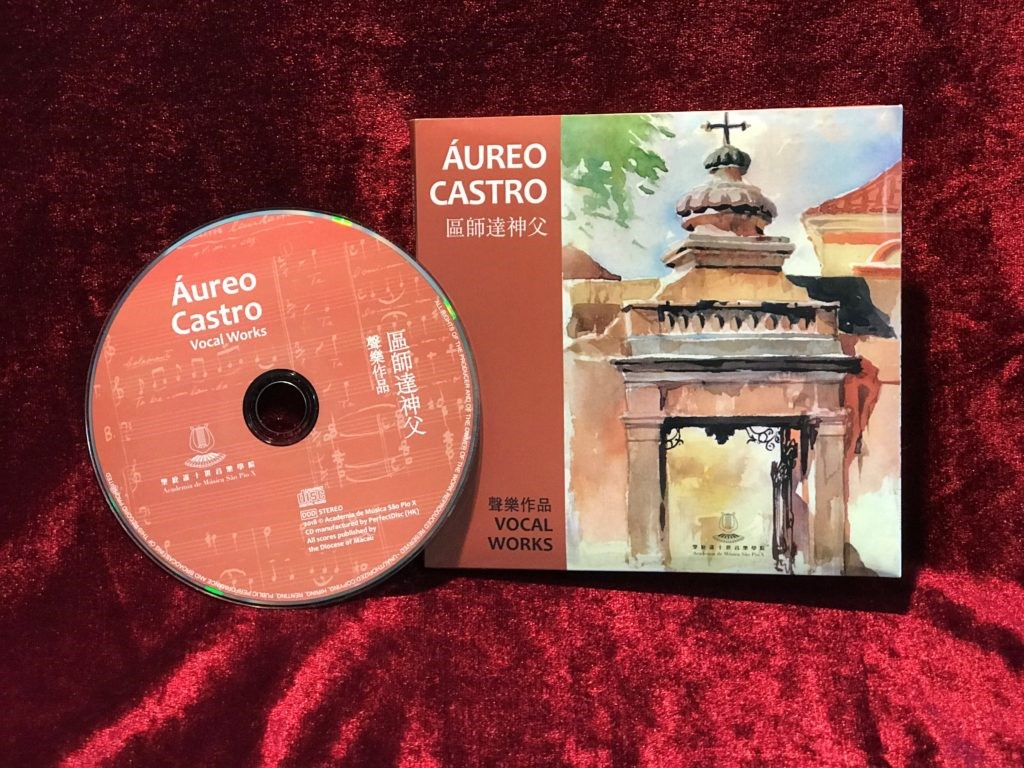A unique recording of vocal music by one of Macau’s foremost composers Áureo Castro was launched on 6 April 6 April at 5pm at the Paço Episcopal. Fr Castro rendered invaluable service to Macau as composer, conductor and music educator for over thirty years, from about 1960 until his death in 1993.
Born in the Azores in 1917, he came to Macau when he was fourteen to attend the St Joseph Seminary, and was ordained in 1943. Except for seven years of studies at the National Conservatory of Lisbon (1951-1958), he remained here, dedicating his life to the church and the promotion of music. It was only after his death that the true extent of his creative output was discovered, performed and catalogued, and the music school that he founded in 1962, the Academia de Música São Pio X, plays a key role in preserving his rich legacy of music compositions with concerts and publications including two books Áureo Castro: A Musical Portrait (2015) and Áureo Castro: Music Manuscripts Catalogue of the Academia de Música São Pio X Collection (2017).
With the aim of enabling a wider appreciation of Fr Castro’s sacred and secular music, the Academia initiated a large-scale project in 2017 to record for the first time many of his most significant vocal works. The recording was generously supported by the Macau Foundation, and involved the collaboration of over 200 singers, conductors, choirmasters, organists and pianists from Macau and Hong Kong. In addition to an ensemble of singers from both cities, local choirs taking part include Coro Perosi, Macau Baptist College Choir and the Academia de Música São Pio X Choir, and Hong Kong participants include the Learners Chorus and Chummy Choir, renowned soprano Nancy Yuen and pianist Helen Cha.
Most of the works were recorded in two of Macau’s historic churches: the church of St Joseph Seminary and St Lazarus Church. Highlights of the CD include original songs Alma minha gentil and Menina dos olhos verdes set to poems by Luis de Camões, arrangements of Chinese melodies such as Yuguang qu (Song of the Fishermen), and sacred works such as the poignant Panis angelicus and the awe-inspiring Te Deum. The CD also includes a historical recording of Yuguang qu, made in 1985, with Fr Castro himself conducting the Grupo Coral Polifónico. This recording represents, therefore, an invaluable contribution to the study and preservation of Macau’s musical memory.


 Follow
Follow


